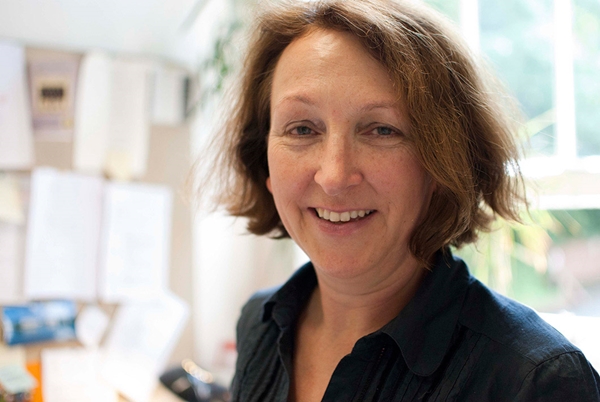Claire Coote

+44 (0)1634 88 3921
My career as an agricultural economist has been development focused and much of the research work I have undertaken has been applied and people-focused in developing countries. I joined NRI in 1997 having worked in Papua New Guinea for an international development capacity building project, for the EU, for ODA (now FCDO) and for international organisations in Geneva (ILO, GATT). My work at NRI is mainly in postharvest areas of agriculture, particularly in market access and value chain development; I have also been involved in social forestry research, particularly in Malawi, and in biomass energy applications for SME in Sri Lanka and Belize.
Between 2003 and 2004, I was based in Mauritius where I led a small EU project to improve the quality of horticultural exports. Between 2006 and 2010, I was part of the NRI team that worked together with CGIAR researchers (CIP – Jan Low - and HarvestPlus – Howdy Bouis, Anne-Marie Ball), funded by the Bill and Melinda Gates Foundation, to develop an approach to reduce vitamin A deficiency via biofortification of orange-fleshed sweet potato varieties to increase their vitamin A content. I developed the marketing strategy for supporting sustainable market development, working with World Vision and other NGOs and two PhD students from Uganda and Mozambique to oversee implementation as well as ascertaining the effectiveness of the approach. I have undertaken market studies on grain legumes for the McKnight Foundation and for ICRISAT.
During the last decade I have become engaged in university teaching, developing courses at Masters level, on Corporate Social Responsibility and Natural Resources Management; Economics, Agriculture and Markets; Understanding Rural Development; Food Marketing, and Food Ethics. I have also developed and delivered a complete MA programme – Rural Development Dynamics. I have used my experience of teaching, particularly of international students, at the University of Greenwich to get involved in supporting teaching and learning at other universities, in the UK and in Africa. I am an external examiner for four Masters courses in agricultural economics at the University of Reading. I have developed and deliver short courses on development to Commonwealth PhD scholars. I have recently delivered training on interactive teaching and learning to staff at Gulu University in northern Uganda, where I am part of a Dutch-government funded NICHE project. My work also encompasses capacity building and I have been involved in FCDO-funded research and training to support capacity development in upgrading value chains, in Mali and Botswana, bringing together policy makers, extension workers and research staff to consider and adopt innovative approaches to increase food security and agricultural incomes. I am currently involved in the Capacity Development for Agricultural Innovation Systems (CD-AIS) project, jointly implemented by AGRINATURA-EEIG and the FAO, and funded by the EU. I am the country focal person for Bangladesh.
I am particularly interested in agricultural education delivery and the learning challenges faced by international MSc students in the UK and in developing country universities. Current focus is on provision of education to many students rather than on the quality of the education provided and the usefulness of such education for employers and for self-employment.
I am also interested in the development impact of PhD research undertaken by developing country Commonwealth Scholars studying in the UK and selection of appropriate indicators to measure the future impact of resources invested by donors in PhD training.
Capacity Building for Agricultural Innovation Systems, 2015 – 2019
Action research designed to make agricultural innovation systems in developing countries more efficient and sustainable in meeting the demands of farmers, agribusiness and consumers to facilitate the sustainable intensification of agriculture to enhance food security and nutrition.
Emphasis is on building research institutions and establishing a relationship between research institutions and farmers, particularly women and youth. Capacities to be developed include communication, partnership building negotiation, conflict management, lobbying and advocacy.
Initial work is to be undertaken in eight countries with aim of developing an effective global mechanism to promote, coordinate and evaluate capacity development approaches to strengthen agricultural innovation systems.
- Coote, C. and Okwadi, J. (2014) The importance of measuring financial viability: the example of orange sweet potato processing in Uganda. Food Chain Journal 4 (3).
- Utono, I. M., Coote, C. and Gibson, G. (2014) Field study of the repellent activity of 'Lem-ocimum'-treated double bags against the insect pests of stored sorghum, Tribolium casteneum and Rhyzopertha dominica, in northern Nigeria, J. Stored Products Research.
- Coote, C., Orr, A. and Munyua, B. (2012) Value chains for pigeon pea, groundnuts and chickpea in East and southern Africa: A synthesis. ICRISAT for the Africa Rising Initiative
- Coote, C., Tomlins, K., Massingue, J., Okwadi, J. and Westby, A. (2011) Understanding farmers, trader and consumer decision-making to assist sustainable marketing of vitamin A-rich sweet potato in Mozambique and Uganda. IFPRI, 2020 Conference New Delhi, 2020 Conference Note 1
Member of the Athena Swan Working Group Co-Athena Swan Champion, Natural Resources Institute

